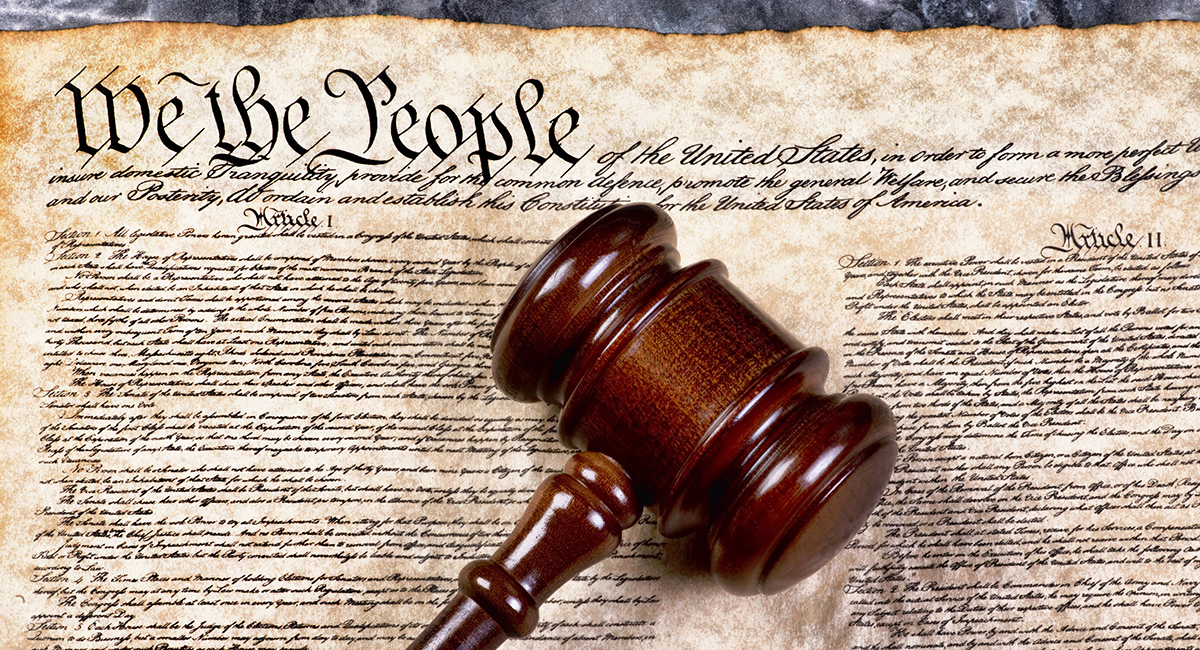The blockbuster Supreme Court cases on abortion, guns, religion, and climate change have now capped the Court’s session. One of the themes that ran throughout some of the cases was the Court’s attempt to strengthen legislative bodies or at least prompt that effect. Of course, the Supreme Court is not always known for its consistency of principle, as in the gun case in which it expanded the nascent right to have a gun for personal defense by rejecting the New York legislature's strict concealed carry law.
However, the Court’s general point is well taken, especially at the federal level with a potentially impactful ruling, West Virginia v. EPA, which rejected sweeping powers for Environmental Protection Agency to regulate gasses causing climate change. All citizens, regardless of their views of climate change, should be leery of the behemoth administrative state at EPA and across the massive girth of the federal government. For decades, Congress has been shirking its legislative duties by writing vague or general laws, thus foisting the public’s ire about excessive and burdensome regulations on unelected bureaucrats at executive or independent agencies, who fill in the broad congressional legal outlines by writing the detailed rules. Whether the U.S. government adopts strict measures to control greenhouse gas emissions or not, the Court is correct that the founders of the country expected Congress to make the laws, not executive branch agencies with the sole mission of executing Congress’s will. In this case, the Court is nudging Congress to actually do its job and take responsibility for legislating on climate change—and likely on other major issues that are now being effectively decided by executive bureaucracies.
Another example of misplaced blame-shifting is the Court’s Shelby County v. Holder decision in 2013. The media has repeatedly referred to the Court’s “gutting” of federal preclearance of certain states’ new election laws to make sure that they would not discriminate against minorities. Indeed, the 14thAmendment’s Equal Protection Clause gives the federal government the authority to perform this important function. The Court did not prohibit the federal government from preclearance, it just said the formula for doing so was rooted in the discrimination of the 1960s and was outdated. Therefore, the Court was inviting Congress to update the law governing the issue; but in the ensuing years, the legislative body once again has shirked its duty. That negligence now has allowed some states to pass election laws that certainly smack of suppressing minority votes. Again, blame should be assigned primarily to Congress, not the Court for pointing out the unconstitutionality of the situation under a changed environment.
The nation’s founders believed that Congress would and should be the preeminent branch of the new government and created a semi-independent executive and judiciary to push back so that Congress would not become too dominant. Yet in the 234 years since the Constitution was ratified, Congress’s abdication of its duties and powers in important areas has led to a marked diminution of its vital role in the constitutional checks and balances system. For example, allowing one person to take the country to war, as European monarchs regularly did at the time of the U.S. founding, was abhorrent to the American founders. Unlike the British system, the Constitution gave Congress the power to take the country to war and declare it. Yet Congress has not declared war since World War II, regularly allows unilateral executive military actions, and is often pressured by the president into lame approval of his larger military adventures. With the advent of the executive budget in 1921, Congress’s important power of the purse has also eroded to the point where the legislative body merely putters around the edges of massive yearly executive budgets, making only incremental changes. The Senate’s role in ratifying treaties by a super two-thirds majority has been severely undermined by presidents’ questionable use of executive agreements, which are not found in the Constitution, require a lower standard of approval or none at all if presidents deign not to send them to Congress or even keep them secret. More generally, the Constitution gives most of the powers in defense and foreign affairs to Congress, with the executive given only powers to negotiate treaties and to nominate diplomats, both for Senate approval, and a narrow commander-in-chief role on the battlefield once the legislative body decides on war.
Regrettably, Congress, no matter which party has control, has become nothing more than a platform for its members to showboat in the media, rather than instead legislating and take the heat or accolades for its actions. Congress has consistently received dismal public approval ratings, lower than recent presidents even during times of severe political polarization, and much lower than the Supreme Court, even after its recent controversial decisions. These bottom-dwelling congressional approval ratings likely reflect Congress’s cowardly abdication of its responsibilities and power.
Some small government advocates applaud congressional gridlock because of a plausible argument that congressional action might make things worse. But they should keep in mind that at least when Congress acts, its members were elected by the people and are non-elected executive bureaucrats and members of the judiciary. Moreover, future Congresses could even pass laws to roll back regulations, as it did at Jimmy Carter’s prodding in the late 1970s. Therefore, measures to make Congress more effective—such as ending the filibuster, which is not in the Constitution and was created by accident—should not be ruled out.

















